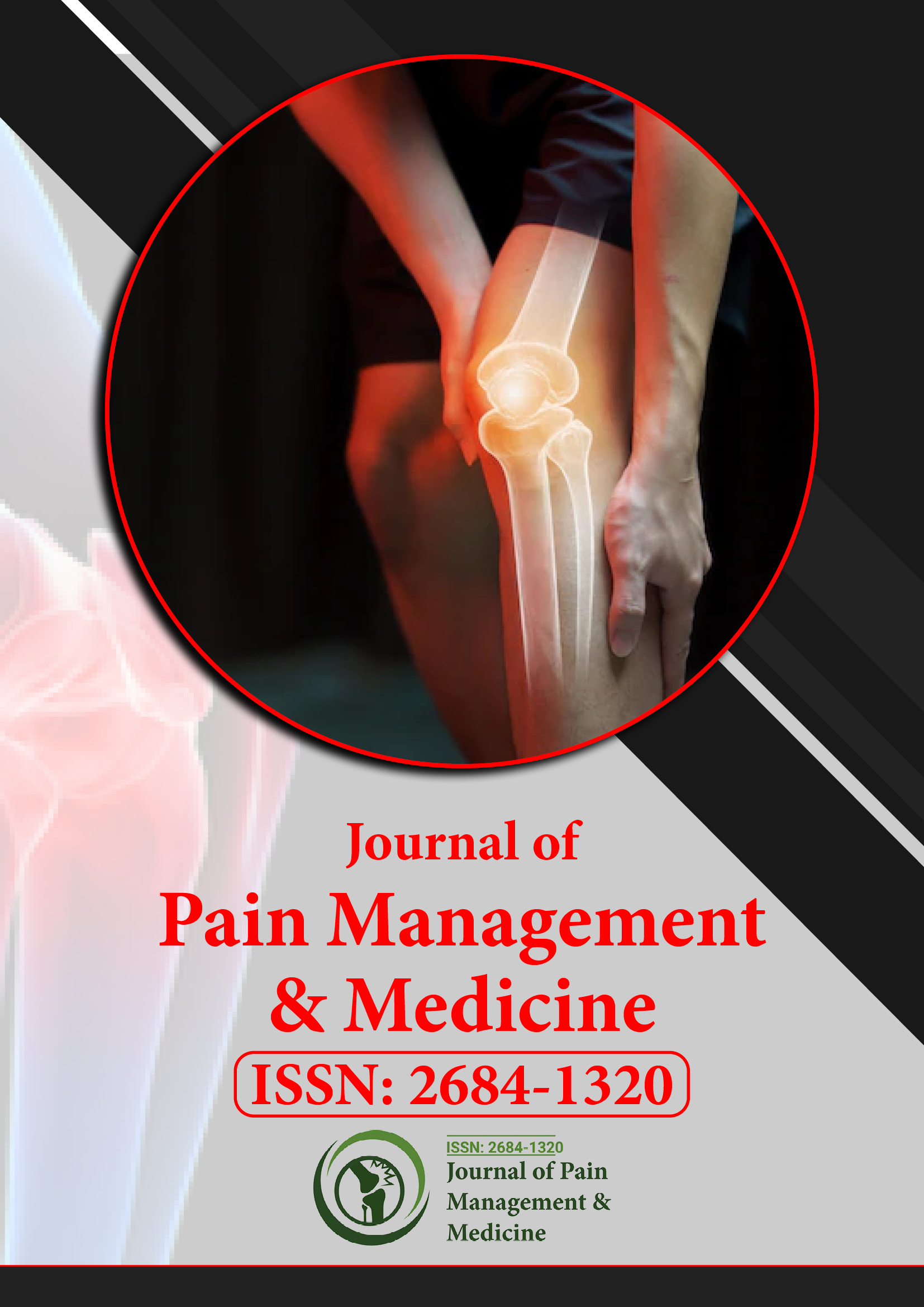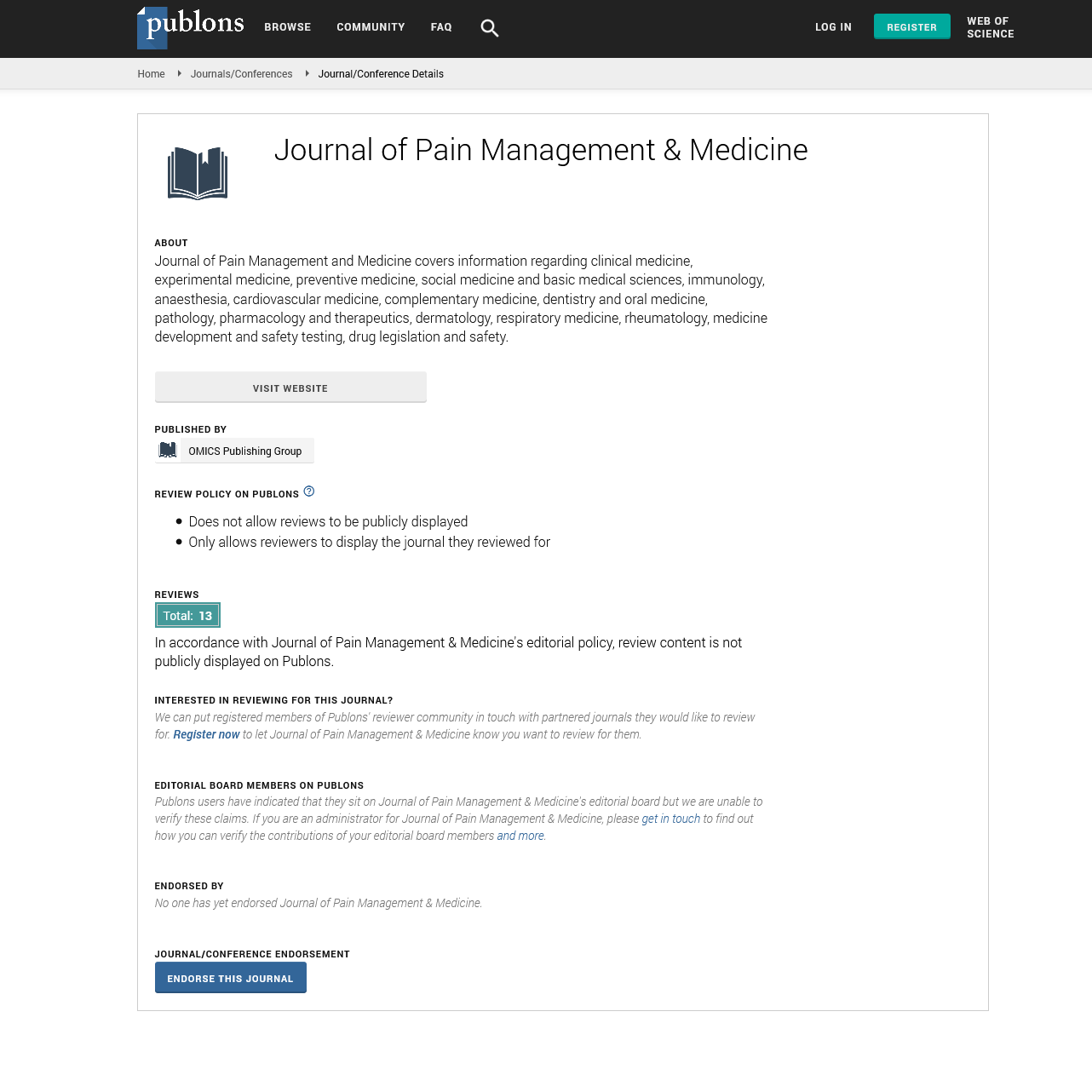Indexed In
- RefSeek
- Hamdard University
- EBSCO A-Z
- Publons
- Euro Pub
- Google Scholar
- Quality Open Access Market
Useful Links
Share This Page
Journal Flyer

Open Access Journals
- Agri and Aquaculture
- Biochemistry
- Bioinformatics & Systems Biology
- Business & Management
- Chemistry
- Clinical Sciences
- Engineering
- Food & Nutrition
- General Science
- Genetics & Molecular Biology
- Immunology & Microbiology
- Medical Sciences
- Neuroscience & Psychology
- Nursing & Health Care
- Pharmaceutical Sciences
Opinion Article - (2024) Volume 10, Issue 2
Complexities of Inflammatory Bowel Disease and its Diagnosing
Gulat Kapoor*Received: 01-Mar-2024, Manuscript No. JPMME-24-25679; Editor assigned: 04-Mar-2024, Pre QC No. JPMME-24-25679 (PQ); Reviewed: 18-Mar-2024, QC No. JPMME-24-25679; Revised: 26-Mar-2024, Manuscript No. JPMME-24-25679 (R); Published: 04-Apr-2024, DOI: 10.35248/2684-1320.24.10.262
Description
Inflammatory Bowel Disease (IBD) encompasses a group of chronic inflammatory disorders of the gastrointestinal tract, including Crohn's disease and ulcerative colitis, which affect millions of individuals around the world. It is characterized by chronic inflammation, mucosal damage, and immune dysregulation, IBD poses significant challenges for patients and healthcare providers similarly, impacting quality of life, nutritional status, and overall well-being. Understanding the underlying mechanisms, clinical manifestations, and treatment options for IBD is essential for effectively managing this complex and equently debilitating condition.
IBD develops from a dysregulated immune response to environmental triggers in genetically susceptible individuals, resulting in chronic inflammation and tissue damage in the gastrointestinal tract. While the specific aetiology of IBD is undetermined it is possible that genetic, environmental, and immunological variables may play an important part in its development. Genetic studies have identified over 200 genetic regions associated with increased susceptibility to IBD, highlighting the importance of genetic predisposition in the development of the disease. Environmental factors such as diet, smoking, medications, and microbial dysbiosis have also been implicated in the pathogenesis of IBD, triggering aberrant immune responses and developing inflammation within the intestinal mucosa.
One of the important challenges in managing IBD is located in its heterogeneity of clinical presentation, with a wide spectrum of symptoms ranging from mild to severe and variable patterns of disease involvement throughout the gastrointestinal tract. Crohn's disease can affect any part of the gastrointestinal tract, from the mouth to the anus, and may present with symptoms such as abdominal pain, diarrhea, weight loss, fatigue, and extraintestinal manifestations such as arthritis, skin rashes, or ocular inflammation. Ulcerative colitis primarily affects the colon and rectum, leading to symptoms such as bloody diarrhea, abdominal cramping, urgency, and tenesmus (the sensation of incomplete bowel evacuation).
Diagnosing IBD typically involves a combination of clinical evaluation, laboratory tests, imaging studies, and endoscopic evaluation to assess for signs of inflammation, mucosal damage and disease extent. Healthcare providers may inquire about the onset, duration, and characteristics of symptoms, as well as any family history of IBD or other autoimmune conditions. Laboratory tests such as Complete Blood Count (CBC), Erythrocyte Sedimentation Rate (ESR), C-Reactive Protein (CRP), and fecal calprotectin may be ordered to assess for signs of inflammation and disease activity. Imaging modalities such as colonoscopy, flexible sigmoidoscopy, and cross-sectional imaging (e.g., CT scan, Magnetic Resonance Imaging (MRI)) may be utilized to visualize the intestinal mucosa, identify areas of inflammation, and assess disease severity and extent.
Furthermore, treatment strategies for IBD aim to induce and maintain remission, alleviate symptoms, and prevent complications such as bowel strictures, fistulas, and abscesses. A pharmacological intervention plays an essential role in IBD management, targeting inflammatory pathways, modulating immune responses, and developing mucosal healing. Aminosalicylates such as mesalamine and sulfasalazine are frequently used as first-line agents for mild to moderate disease, exerting anti-inflammatory effects within the intestinal mucosa. Corticosteroids may be prescribed for short-term use to induce remission in patients with moderate to severe disease, although their long-term use is limited by potential side effects such as osteoporosis, diabetes, and immunosuppression.
Moreover, immuno-modulatory agents such as thiopurines (e.g., azathioprine, 6-mercaptopurine) and methotrexate may be used as steroid-sparing agents or maintenance therapy to reduce inflammation and prevent disease flares. Biologic therapies such as Tumor Necrosis Factor (TNF) inhibitors (e.g., infliximab, adalimumab), interleukin-12/23 inhibitors (e.g., ustekinumab), and integrin antagonists (e.g., vedolizumab) target specific inflammatory pathways involved in IBD pathogenesis, providing targeted and personalized treatment options for patients with moderate to severe disease. These biologic agents have revolutionized the management of IBD, providing effective and durable control of symptoms and improving quality of life for many patients.
Citation: Kapoor G (2024) Complexities of Inflammatory Bowel Disease and its Diagnosing. J Pain Manage Med.10:262.
Copyright: © 2024 Kapoor G. This is an open access article distributed under the terms of the Creative Commons Attribution License, which permits unrestricted use, distribution, and reproduction in any medium, provided the original author and source are credited.

